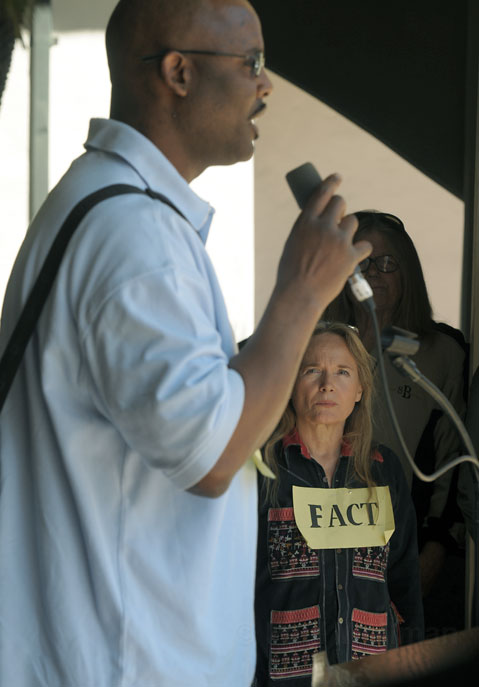Not So Merry Merry-Go-Round
County Finds Jailing Mentally Ill More Expensive than Treatment

High-powered number crunchers for the County of Santa Barbara have concluded it costs $12,000 less a year to house and treat a mentally ill homeless person than it does to keep them locked up in the county jail. This statistical revelation came in response to last year’s Grand Jury report that described the county jail as a revolving door for the mentally ill indigent. That report concluded, “This recycling is not good for the county,” a finding heartily reaffirmed by the response embraced unanimously by the county supervisors this Tuesday.
County administrators found that it costs roughly $44,572 a year to keep someone struggling with mental illness under lock and key for a year. By contrast, it would cost the county $33,560 a year to house and treat that same individual. But this assumes there are places available to house this population and funding available to pay for the in-home services to treat them. According to the most recent report, it costs between $95,000 to $170,000 to create an additional unit of such housing. And given the state of mental health funding, financial support for such services is problematic at best.

Longtime homeless advocate Mike Foley—and director of the La Casa Esperanza homeless shelter—objected that the most recent report significantly overstated the cost of housing while dramatically understating the true cost to the criminal justice system of “criminalizing” the mentally ill. Foley contended that it’s far cheaper to secure dwelling units in existing housing scattered throughout the county than it is to build new developments. Likewise, he faulted the county’s report for failing to consider the costs of arresting the mentally ill homeless, transporting them to county jail, arraigning them, and processing them through the courts.
While the county supervisors typically bicker over such politically divisive issues as the homeless, they found themselves in general agreement about the problem. What to do about it, however, proved an elusive matter. “Everyone agrees,” exclaimed 4rth District Supervisor Joni Gray, “but we’re not getting anywhere.” First District Supervisor Salud Carbajal noted, “We could have spent less and treated more,” while bemoaning the likelihood the report will be consigned to an administrative shelf and accumulate dust.
Third District Supervisor Doreen Farr, a leader on homeless maters, argued it was necessary for the county to develop an action plan even if the funds do not currently exist to support it. “It’s easy to say we don’t have the money, but 25 percent is a whole lot of money to be spending the wrong way.” Second District Supervisor Janet Wolf expressed hope that state funding might be forthcoming for alternatives to incarceration as part of AB 109. That’s the state bill requiring county jails to take nonviolent offenders now serving up to three years in state prisons. To date, Santa Barbara County has taken 106 additional inmates as a result of AB 109.
Undersheriff Jim Peterson expressed optimism that a greatly anticipated new North County jail would contain 16 new acute mental health beds. Currently, there are 12 countywide. Fifth District Supervisor Steve Lavagnino also seized upon the new North County jail—still far from certain—suggesting the additional space could allow the mentally ill to be segregated from the general population and given treatment in a space better designed to meet their needs.
The complexity in addressing the needs of the mentally ill was made manifest during a press conference held by mental health advocates urging the supervisors to fund treatment rather than incarceration. Nancy Speer charged that her mentally ill adult son has been “brutalized” while recently in County Jail. When she visited, he was lying in a naked fetal position on the concrete floor of the “safety cell.” He hadn’t eaten, she said, and there were self-inflicted wounds all over his body. “Do unto others,” she said—her voice cracking—“as you would have them do unto you.” Then her son, Ben Warren, spoke, and he said his experience in County Jail was positive and beneficial. Warren was jailed for violating probation after having been initially arrested for getting into a fight. Only recently, he acknowledged, has he agreed to take medications; before that he refused.



